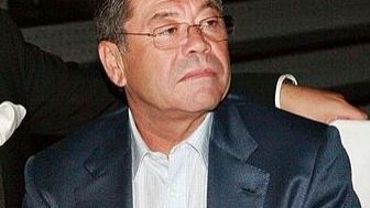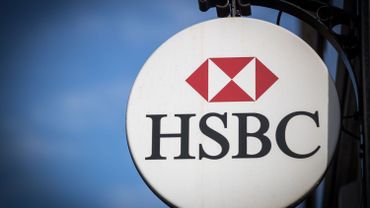The former number 1 of Proximus, Dominique Leroy, has decided to end the criminal proceedings for insider trading hanging over her by concluding a criminal transaction with the Brussels public prosecutor’s office.
For an amount of 107,000 euros, the former CEO of the Belgian telecom operator thus avoids a lawsuit. At the same time, she escapes a possibly heavier sanction which would have been pronounced by the court but also a possible recording in her criminal record.
On the justice side, the process allows to avoid clogging up the courts. It also makes it possible to avoid a possible prescription if the courts have delayed. For the state coffers, it is a substantial return of money. In 2018, criminal transactions also brought in 114 million euros, according to L’echo.
–
The criminal transaction law amended in 2011
Belgian law on the penal transaction does not date from yesterday since it dates from 1935. This legal possibility thus exists for a long time. And it does not only concern “white collar criminals”, since it allows, for example, certain motorists to avoid a trial following a traffic violation.
It is therefore an alternative way of settling criminal disputes through negotiation between the prosecutor (the King’s Attorney) and the prosecuted party.
►►► Read also : What is the criminal transaction?
More since 2011, the scope of this law has been greatly enlarged, following a very quick vote in parliament. A speed that aroused suspicion, generating the Kazakhgate affair, and its parliamentary commission of inquiry. Since then, it can be used, among other things, for: theft, all facts relating to financial crime, fraud, breach of trust, etc.
Importantly, not all lawsuits can be terminated through the settlement of a criminal transaction. If the sentence incurred by the person who is the subject of proceedings is more than two years’ imprisonment, he will not be able to have access to this legal option.
►►► Read also : Criminal transaction: class justice?
Since 2011, and the extension of the law, this criminal transaction is regularly in the spotlight with media reports, and has been the subject of numerous criticisms. Some litigants believe that this “tool” generates what some call “class justice”.
But what are these most publicized cases of criminal transactions in Belgium which can give the impression of “class justice”? How much have these criminal transactions brought to the state
–
Patokh Chodiev (2011)

7 images
–
–
It is impossible to discuss the criminal transaction in Belgium without mentioning the name of the Belgo-Kazakh billionaire, Patokh Chodiev. Involved in the Tractebel scandal, a thAn energy consultancy company, the businessman was the subject of a company complaint in 1999 for the payment of suspicious consultancy commissions, amounting to 55 million euros.
The businessman is then prosecuted for forgery of writing and money laundering, but he will ultimately be “laundered” thanks to the new law on criminal transactions quickly adopted, which allows him to get away with the payment of nearly 23 million euros.
►►► Read also : All information on the Kazakhgate
At the time, the liberal politician Armand De Decker was vice-president of the Senate, but also the lawyer of Patokh Chodiev. The chained duck then reveals that the Belgian-Kazakh businessman would have paid more than 700,000 euros to the man who was also burgomaster of Uccle. Suspicions then weigh on Armand De Decker because of the speed with which the new law is passed and his double hat, as president of the Senate and at the same time lawyer of Chodiev.
The case will have a significant impact and will give rise to what has been called and the Gazette. This scandal will even lead to a parliamentary commission of inquiry and the resignation of Armand De Decker from his party, the Reform Movement, following his indictment in the file.
Finally, the criminal transaction which allowed the Belgian-Kazakh billionaire Patokh Chodiev to escape prosecution reportedly only 3.5 million euros to the state, and not nearly 23 million as estimated before that. According to the text of the transaction, Patokh Chodiev and the six other defendants paid a fine of 522,500 euros each, to which are added legal costs of 251,000 euros.
–
Omega Diamonds (2013)

7 images
–
–
The diamond firm Omega Diamonds imported, between 2003 and 2008, diamonds from Angola and the DRC in Antwerp, via Geneva or Dubai. The certificates of origin would have been modified there by indicating a value lower than the real value, in order to pay less taxes. Former employee David Renous had notified the justice system.
Following this affair, the ten defendants had concluded an agreement with the Special Tax Inspectorate and the Antwerp Public Prosecutor’s Office to escape prosecution through the payment of 160 million euros.
–
Publifin (2018)

7 images
–
–
Following the Publifin affair, where politicians were accused of having received undue remuneration for sitting on “sector committees” of the intermunicipal group Nethys (Voo, BeTV, The future) without necessarily attending meetings .
►►► Read also : Publifin (ex-Tecteo), an empire with vague outlines
The compensation of the former management team (including Stéphane Moreau) of Nethys valued at several million euros and was also the subject of an investigation.
Forty people involved in the file have received proposals for court transactions for varying amounts from 4 to 33,000 euros. 29 of them agreed to pay a criminal transaction to settle the lawsuits.
–
HSBC (2019)

7 images
–
–
In 2019, it is another big judicial file that makes the headlines. HSBC Private Bank pays a fine of € 294.4 million, a record for the Belgian justice, to put an end to the penal aspect of a case of tax fraud, money laundering and illegal exercise of the function of financial intermediary.
The consortium of journalists ICIJ revealed in February 2015 the existence of a large-scale tax fraud and money laundering mechanism put in place by the Swiss subsidiary of the bank HSBC for the benefit of tens of thousands of wealthy clients around the world, including 1000 in Belgium according to the prosecution. The Belgian State had brought civil action in this case in 2015.
At the time, Sabrina Scarna, lawyer specializing in tax law at Tetra Law explained to RTBF that sif the bank had accepted such a transaction, it is mainly to avoid long and costly procedures. “I am not sure that a criminal conviction would have been so far, but the reputational risk is enormous, the risk of losing authorizations, the length of criminal trials, etc., it is rather that which pushes the bank, but all the people who actually trade to go through the criminal transaction. “
–
Stéphane Moreau (2019)

7 images
–
–
Even more publicized, but less profitable this time: the criminal transaction which benefited the former boss of Nethys while the justice of Liège led prosecutions for forgery and use of forgery and embezzlement by persons exercising a public office.
Stéphane Moreau was then vice-president of the social housing organization, where his mother was employed. When she was hired, her career was artificially extended by ten years in order to increase the capital she could benefit from upon retirement.
This was not the only case investigators were investigating. Other facts in which the former socialist agent would also have been involved were in the sights of the investigators as the construction of a hydroelectric plant in the Congo where it is a question of abuse of social goods, or the Ogeo-Tecteo file, dating back to 2008, and relating to doubtful invoices and loansx.
The amount of this criminal transaction has not been revealed.
–
Dominique Leroy (2020)

7 images
–
–
Finally, latest file, that of Dominique Leroy, the former patron of Proximus. The CEO of Proximus, who left for KPN, was finally forced to give up his new position with the Dutch operator following an investigation opened against her for insider trading.
This settlement comes from the sale by Dominique Leroy of its 10,840 Proximus SA shares on July 25, 2019.
According to the FSMA, Ms. Leroy owned, at the time of the sale of her shares, “inside information which arose from the existence of advanced negotiations with KPN having as its object his engagement as CEO and as a consequence the non-renewal of his mandate as CEO of Proximus SA.“In the eyes of the FSMA, this sale therefore constituted an insider transaction. Dominique Leroy did not admit guilt and his criminal record will remain blank.
According to L’Echo and De Tijd, Dominique Leroy will have to pay the maximum fine. This amounts to 80,000 euros. She will also have to pay the amount of her property benefits – just over 6,000 euros – multiplied by four, as well as pay the legal costs. For an approximate total of 107,000 euros.
The transaction, however, has not yet been approved by the judge, Jean Coumans, who reserves his decision until July 15.
–
–


